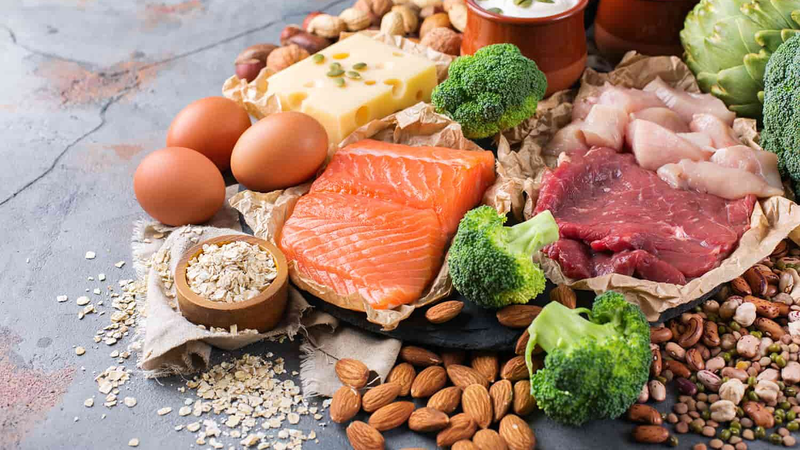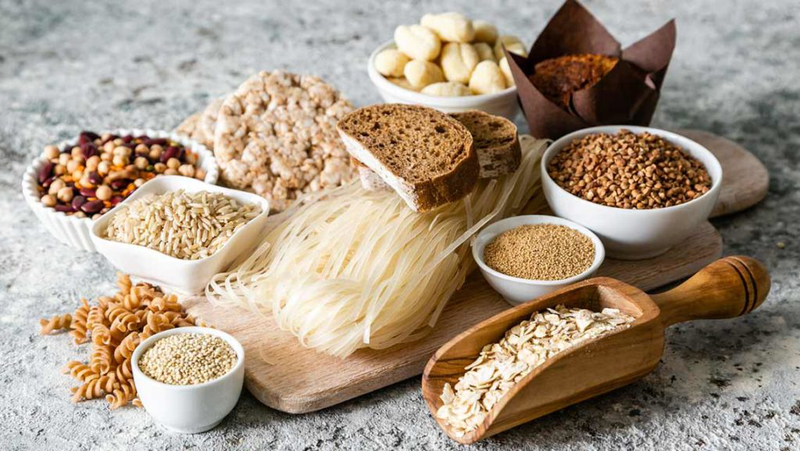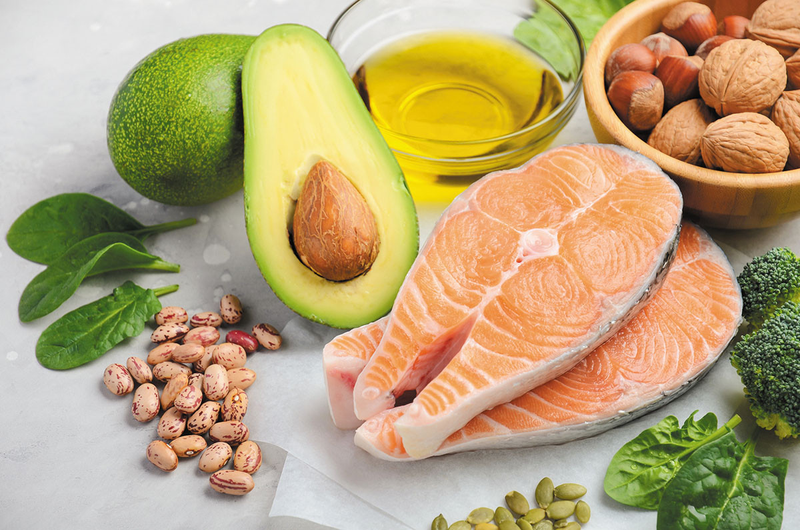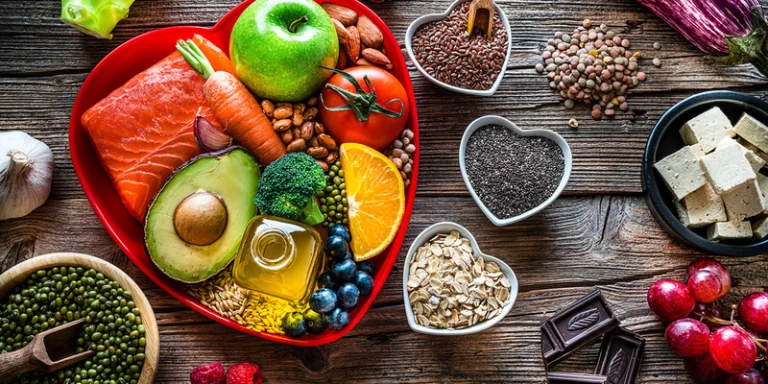Important nutrient groups for the body need to be supplemented daily
Food is the main source of nutrients for the body. Currently, nutrients are divided into 4 main groups: carbohydrates, protein, fat and the remaining group are vitamins and minerals. So, which groups of nutrients are necessary for the body?
For the human body, nutrients are indispensable and are mainly supplemented through diet. So what are the main nutrient groups and what role do they play?
Learn generally about important nutrient groups
The groups of nutrients necessary for the body are divided into 4 groups: protein, carbohydrates, fat and finally vitamins and minerals. So, among the groups of nutrients, which group provides the most and most necessary energy?

According to research results, protein, carbohydrates, and fat are three groups of substances that produce energy. Energy will be put into the body in the form of food chemical energy, specifically 1g of carbohydrates produces 4kcal, 1g of protein produces 4kcal and 1g of fat produces up to 9kcal.
Energy generated from nutrient groups will be used for basic metabolism and other life activities such as exercise, work, study,… helping the body grow and develop day by day. The remaining group of substances are vitamins and minerals that do not play a role in energy production but have an important role in strengthening the immune system as well as cell metabolism.
The significance of protein for the body
Protein or protein is an important group of nutrients for the human body.
In normal people, protein accounts for up to 16% of total body weight. Every cell in our body, from skin to hair, bones, etc., contains protein. All antibodies, hormones and important substances are composed mainly of protein. Not only that, protein also participates in the process of building body structures such as muscles, organs,… ensuring growth and maintaining good health.
Specifically, the roles of protein are as follows:
- Protein is the raw material that forms the body’s cells;
- Protein creates digestive juices, enzymes, and hormones that regulate the body’s activities;
- Raw materials to produce antibodies, helping the body fight pathogens;
- Participate and support the process of transporting substances;
- Regulates and balances water with the internal environment.

Protein molecules are made up of more than 20 different types of amino acids, including some that the body can synthesize on its own, but there are also many that need to be supplemented from food through the diet. Protein is found in meat, fish, shrimp, crab, squid,… or legumes such as peanuts, black beans, cereals,…
Meaning of carbohydrates
When talking about nutrient groups, we cannot help but mention carbohydrates. This is a group of essential energy supplements for the body, especially the brain and central nervous system. Besides, powdered sugar also helps protect the body against many dangerous diseases. The roles of specific carbohydrates are:
- Makes up cells and tissues in the body;
- Supports brain and nervous system development;
- Regulates body activities;
- Using foods rich in carbohydrates also adds fiber to the body.
Each 1g of carbohydrate will provide the body with about 4kcal of energy. This is also a group of substances that account for 60 – 65% of the total energy the body receives through a meal. Because energy from carbohydrates is so important, you need to choose healthy, high-quality sources of carbohydrates for your body, such as brown rice, sweet potatoes, corn, beans, whole grains, etc.

Meaning of fat for the body
The next substance in the important nutrient groups that we want to mention is fats.
This is the most concentrated source of energy and also provides the highest amount of calories, with each 1g of fat providing up to 9kcal of energy. Fat usually accounts for 18 – 25% of the total energy level in the diet. Experts say children’s daily fat needs are higher than adults. The role of fat includes:
- Energy is stored in the form of adipose tissue.
- Enhances absorption of minerals and fat-soluble vitamins.
- Supports the natural blood clotting process and cell structure and muscle movement.
- Contributes to the development of brain cells and a healthy nervous system.
- Healthy fats help balance blood sugar, reduce the risk of diabetes, cardiovascular disease, and improve brain and nerve function.
- Having good anti-inflammatory properties, properly supplementing fats can help prevent arthritis, Alzheimer’s disease and even cancer.

Meaning of vitamins and minerals
The last group of important nutrients is vitamins and minerals. This group of substances does not participate in energy production but also plays an important role in health and is indispensable in daily meals.
There are 13 essential vitamins that need to be supplemented: vitamins A, C, D, B, E, K,… each vitamin has a unique role and cannot be replaced by any other group of substances.
These vitamins help the body strongly fight oxidation, restore and regenerate damaged cells as well as prevent prostate cancer and lung cancer. Vitamin A is very good for the skin and nervous system, vitamin D is good for bone development, vitamin C enhances resistance, heals injuries quickly,…
Besides, minerals are also in the groups of essential nutrients, playing a role in the development and maintenance of healthy bones and teeth, regulating metabolism and supporting many biochemical reactions. other. Important minerals include iron, calcium, potassium, magnesium, zinc,…

Hopefully the above sharing about nutrient groups has helped you grasp useful information, thereby improving your scientific and healthier diet. These groups of substances have the same important role and cannot be replaced, but you need to balance them to avoid causing obesity, weight gain, etc. when consuming too much fat.
Source: nhathuoclongchau





